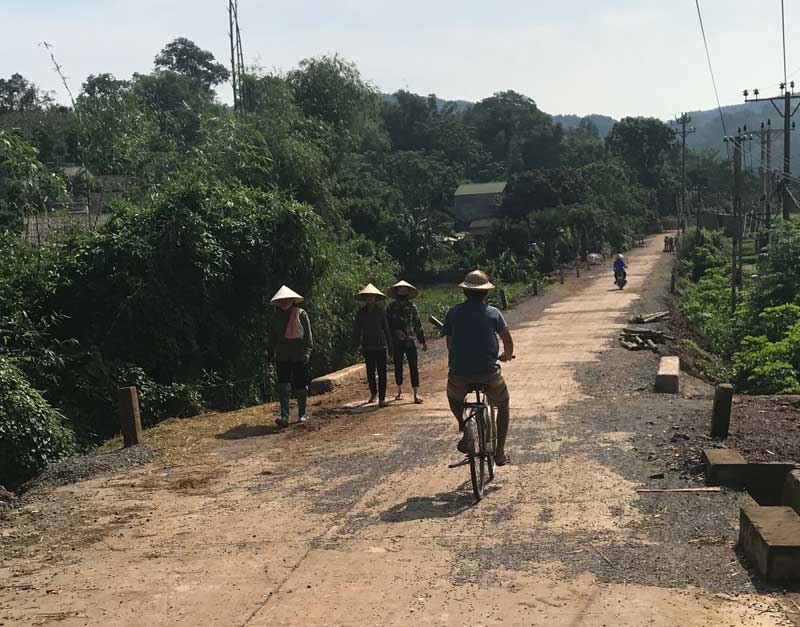


The commune seriously implements to public
the construction plan of the works to the local people through meetings,
contacts with voters and radio broadcasting. They also post the programs,
implementation plans, maps and planning maps of all the items at the
headquarters of the Commune People's Committee, the cultural houses in the
villages for people to monitor and supervise. Especially, in the ground
clearance, the coordination among the Party Committee, the People's Committee
of the commune with the Fatherland Front, mass organizations and
socio-political organizations plays a very important role in grasping the
hearts and aspirations of the local people when implementing programs and
projects directly related to the local people's lives.

Promoting democracy well at grassroots, Tu Ne
Commune (Tan Lac) has solidified over 95% of rural roads, facilitating the
transport for people to travel and transfer goods.
From the pioneers and examples of staffs and
Party members, the local people in the commune actively participated in land
donation movement such as: the households of Mr. Bui Van Nho, Bin village has
donated more than 200 m2 of land for sport ground of the village; Mr. Bui Van
Dung in Chua village; Mr. Dam Quang Minh, Pham Cong Phong in Moi I village,
etc. Mr. Quach Pien, the Head of Chua village said: "Performing the
propaganda and advocacy, I always get the consensus of the residential people
as a measure of the task completion level. Since then, I and other members of
the Party always uphold the spirit of self-consciousness, and being an example
in the implementation of the general movements. In order to let local people
agree to donate their land, it needs much patience with many times of
explaining. Particularly, it is needed to public disclosure of the data on
people's contributions to the meetings, posted at the cultural house for people
to follow". As a result, at present, the commune now has solidified more
than 95% of roads; 100% of the villages have cultural houses; 100% of the
households are using electricity, three thirds of schools in the commune meet
the standards, the average income per capita is 40 million VND per year; the
proportion of the poor households is under 8%. From the year of 2016 until now,
the local people have donated more than 3,000 m2 of land, contributing 8.4
million VND, 5.270 working days valued at 316 million VND.